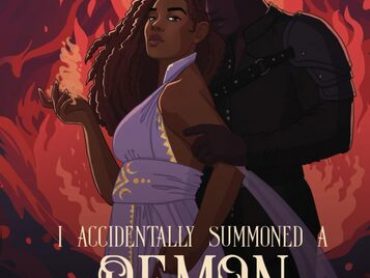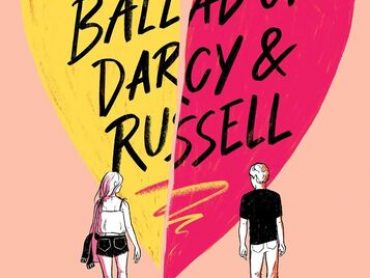An LGBTQ, Black-Hispanic teen with an eclectic taste in music, Paul C Williams has struggled with his identity, eventually leading to mental illness. However, with support from his siblings, he gained new confidence to express his inner emotions through art and writing. At age seventeen, he published his first book. In 2018, along with his friend, Icesis Street, Paul C Williams won the Technology Student Association (TSA) 1st place State award for children’s storybooks. His newest book is The Shadow of Hades, where souls are dragged from the afterlife and placed into the form of a young boy. Death itself is torn apart, and the fabric of the universe comes undone. Paul C Williams will discuss his book and more as he takes over YEM’s Twitter account this afternoon. See our exclusive interview with Paul C Williams here!
Young Entertainment Mag: Your book is called “The Shadow of Hades.” What inspired you to write this story?
Paul C Williams: The idea first came from a lingering dream I had in 2016. It was a school morning, and when I woke there was a shadowy figure beside my bed with big dark wings, and it stuck in my mind, so throughout the day I just kept asking what that creature was. At first my mind thought ‘Hades’ but it was more of a shadow. So that’s where the title ‘The Shadow of Hades’ started.
The story just built from there. I remember writing notes about it when I should have been paying attention in Biology class. I put the story down for a few years, and eventually I combined it with another idea I had for a book about witches. And the half formed stories came together into a bigger picture that I was excited to explore.
YEM: Were you already familiar with Hades? Did you do any research on Greek mythology?
Paul: I was a Percy Jackson kid growing up, so I had an interest in Greek Mythology. I think it’s a big attraction for a lot if not most fantasy authors. So yes, I was pretty familiar with a lot of the underworld lore.
The Hades in my story doesn’t take directly from greek mythology, though. It’s more Hades in name, another word for a personified version of Death. Where I did draw from the actual myths was in the symbolism, which I really tried to pack into the subtext. That was very important for me, and I’m excited for a sharp reader to get the underlying concepts.
I had so many ideas for the themes and references that I can’t remember them all now that I’m done. Dissecting stories is really fun for me. So I try to layer my work for other readers who enjoy that as well. One place where I did draw directly from underworld lore is the name of the green mist. Which is later revealed to be called ‘Acheron’ known as the ‘river of woe’.
YEM: This book contains 4 different stories- is it hard to juggle multiple stories at once? Does this include multiple narrators?
Paul: Yes! It is a difficult task especially when the characters aren’t directly interacting for the majority of the story. And that’s been a sore point for a few readers. However I noticed that those who stick with the book tend to really enjoy how the characters come together.
I am a huge fan of A Song of Ice and Fire, although what fantasy nerd isn’t? George RR Martin is one of my writing inspirations, and I found the way he wrote multiple storylines appealing. I was also reading IT by Stephen King as I was writing. And the richness of his world and viewpoints really inspired me as well. My previous work only had one POV, and I guess I was ready for a change. But I don’t want to stick to one form of storytelling. I’m very open to changing my approach as I continue my career.
YEM: Hades is the God of the underworld. What is it that interested you in writing about the unknown of the underworld?
Paul: What isn’t interesting about the underworld!? It’s something ingrained in the human subconscious, with so many varying ideas on what it could be like. It’s an undercurrent in all of our lives, and my main idea was ‘what if death was an ecosystem, or like a living organism that ran throughout the whole universe?’ If that was the case then humans would be like “cells” right? I just loved exploring how that would work, and how our world could be inverted from the perspective of death. A shadow of reality, you might say.
Only later, after finishing the book did I learn about the concept of Entropy, and how everything in the universe wants to be broken down into its simplest form. I remember being struck, thinking that was a lot like the idea of death that I came up with. Of course my version is more magical. The core idea of a law of nature that basically embodied death is really at the heart of my exploration of the ‘underworld’.
YEM: In “The Shadow of Hades” souls are placed into the body of a young boy. Why did you choose a young boy as the house for these souls?
Paul: I didn’t have to think too much about that aspect. The boy, who later calls himself Blake, just came to me as he was. I wondered if he should be anyone different, but I couldn’t see a reason why. I think I am also heavily influenced by the media I grew up with. Being a young boy who read fantasy, many of the protagonists were built to reflect that.
But Blake isn’t a typical adventure protagonist in any sense. I gave him a lot of the real anxieties and fears that plague many teenagers these days, but his were amplified because he was basically a zombie but with a ton of souls inside of him, all with their own voices. That was a big point for me, how do I make this realistic, and ground this character. I figured he wouldn’t be too happy about his new life, and he wouldn’t be used to our world, especially coming into it as a teenager.
YEM: Can you relate to the young boy that is housing these souls? Can you relate to being a young kid with personal demons?
Paul: I can relate to all of my characters, they all carry fractured pieces of my identity, but it does make sense that Blake is the one I would relate to a little closer than the others.
I used a few experiences in my life to paint the tone of Blake’s story. He doesn’t necessarily go out and battle with the forces holding him down, he is pulled along by these cosmic entities and has to cope with them. Alongside that he is responsible for the fate of the universe, and has to make decisions based on his personal life that will seal everyone’s fate.
A big aspect that I realized late into the writing process was Blake’s closure letters. They’re letters he writes based on the voices of the souls inside of him. And that’s a lot like being a writer. There’s stories and characters inside of my head that I have to get out, and they’re all unique to my experiences.
YEM: This story shows how important mental health is. What do you hope people learn from this book about mental health? Or what do you hope they think about pertaining to mental health?
Paul: Readers that talk about these characters often consider them deeply flawed people, and that’s a turn off to some, but others who speak about them talk about how deeply attached they are to their stories, and how well crafted they are. No one in this book is a hero, they were swept up in their own lives, largely unaware that their actions affected the universe. My hope is that people view this as a character driven story, and that they are able to see their struggles reflected to them through the page.
There isn’t really a happy ending here, this book has been considered uncomfortable, but I’m hoping to attract readers who aren’t afraid of that. I want this art I’ve created to show people battling similar demons that they are represented. This story thrives off of the sometimes selfish, and disturbing aspects of our minds, but despite that there is so much hope, and so much light as well.
There’s fun times with these characters, and there are dark ones. The theme that I hope prevails is that life is worth living for the sparks of joy we grow to overlook. This book, even if it is not a source of strength for others, is something I look to, when I need to remind myself to work past my flaws, and my trauma, and to do my best to grow. There’s cautionary tales in here, but there are also victories. I want readers to appreciate both.
YEM: What would you say to someone that feels they are dealing with personal demons and wants to overcome them?
Paul: I could say any number of cliches here. Most advice for mental health is a caricature of itself at this point, so I think I’ll take my time to recontextualize one that we all know.
‘Keep going’ – That’s the most common one, I think. And to me when people say it, I may just roll my eyes. How can I keep going if I don’t know where I’m going. Or if there’s a huge wall blocking me, or if I just have no desire to go any farther? And I don’t think I can answer that for anyone else. When I say ‘keep going’ here, I want someone to pursue what makes them comfortable. They don’t have to strive for anything society tells them to.
Mental health advice is too often given to keep the wheels of society turning. What gives me comfort is the idea that I am allowed to live for myself and myself alone. Start small, live for the breeze when you step outside, live for a cup of coffee in the morning, live for the next level of that video game. And overtime, as life gradually seems less daunting, live to pursue your goals. If you don’t have any, that’s ok, eventually you’ll find a spark to chase, but it’s not essential if everyday is a battle just to take the next breath.
And lastly, I’m going through it everyday as well. A ton of people are. That’s not comforting on the surface.But when I really think about it, and when I hear others’ stories I learn that people I really like don’t have it together nearly as much as I expect. You can make a brand off of that these days. Because everyone is struggling. And maybe, if you choose to read ‘The Shadow of Hades’ you’ll see your pain reflected and gain a little more strength to carry on.





